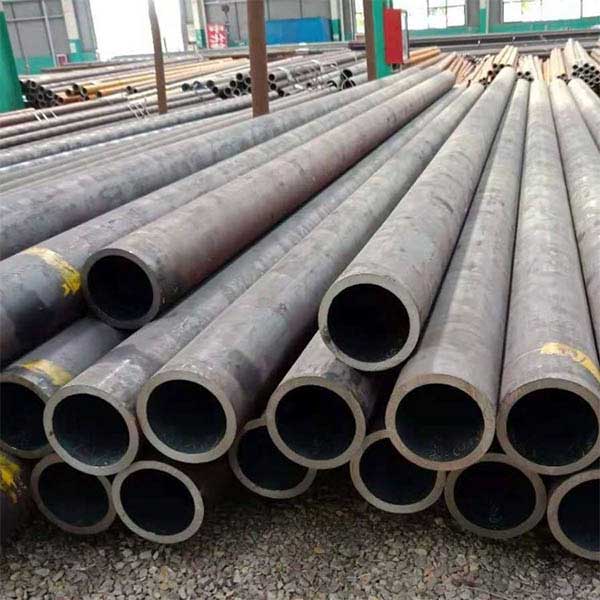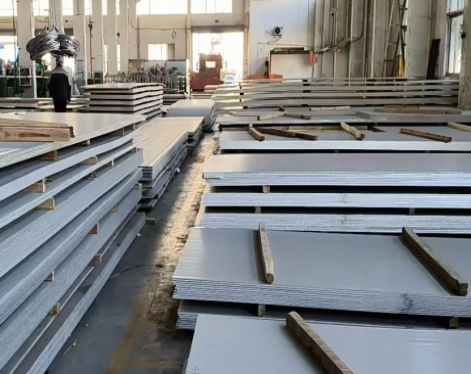The difference between water tube boilers and fire tube boilers lies in the medium inside the boiler tubes. In water tube boilers, water flows through the tubes and is heated by external flue gases through convection/radiation heat transfer; whereas in fire tube boilers, the flue gases flow inside the tubes, heating the medium outside the tubes to achieve heat transfer.
Fire tube refers to the tubes through which flue gases flow, heating the medium outside the tubes to achieve heat transfer. Fire tube boilers have a simple structure, large water and steam volume, good adaptability to load changes, and lower water quality requirements than water tube boilers, and are often used in small enterprises for production processes and domestic heating.
Fire tube boilers have a simple structure, large water and steam volume, good adaptability to load changes, and lower water quality requirements than water tube boilers, and are often used in small enterprises for production processes and domestic heating. Water tube boilers have convenient heat surface arrangement, good heat transfer performance, and are structurally used for large capacity and high parameter conditions, with higher requirements for water quality and operation level.
What are the specific differences between water tube boilers and fire tube boilers?
(1) Efficiency
In terms of efficiency, water tube boilers are superior to fire tube boilers. Water tube boilers require much less water to operate, and their steam generation rate is also higher than that of fire tube boilers. This helps to reduce the amount of water and fuel required for the operation of water tube boilers. The advantage of efficiency helps those who use water tube boilers to reduce their environmental impact and energy costs. Water tube boilers are not only energy-saving but also time-saving. The most advanced water tube boilers can reach full steam capacity in just a few minutes, while fire tube boilers may take several hours to reach the same capacity.

(2) Size
There is a considerable difference in size between the two types of boilers. Fire tube boilers will occupy more floor space, forcing you to waste valuable space on a larger boiler room than actually needed, and they may also be more difficult to transport. Modern water tube boilers have alleviated this issue because they are lighter in weight and do not occupy as much space as fire tube boilers, making water tube boilers the better choice if space is very precious.
(3) Safety
Most importantly, water tube boilers are much safer. This fundamental difference between the two types of boilers is related to their water usage. In fire tube boilers, if the metal contracts due to low water levels, injecting a large amount of cold water into the boiler can cause the metal to expand too quickly, leading to an explosion, which can be catastrophic.
However, since water tube boilers require much less water to operate, there is no risk of explosion. If a water tube does rupture, the energy release is only a localized release, preventing the catastrophic explosions that can sometimes occur with fire tube boilers.
Fire tube refers to the tubes through which flue gases flow, heating the medium outside the tubes to achieve heat transfer. Fire tube boilers have a simple structure, large water and steam volume, good adaptability to load changes, and lower water quality requirements than water tube boilers, and are often used in small enterprises for production processes and domestic heating.
Fire tube boilers have a simple structure, large water and steam volume, good adaptability to load changes, and lower water quality requirements than water tube boilers, and are often used in small enterprises for production processes and domestic heating. Water tube boilers have convenient heat surface arrangement, good heat transfer performance, and are structurally used for large capacity and high parameter conditions, with higher requirements for water quality and operation level.
What are the specific differences between water tube boilers and fire tube boilers?
(1) Efficiency
In terms of efficiency, water tube boilers are superior to fire tube boilers. Water tube boilers require much less water to operate, and their steam generation rate is also higher than that of fire tube boilers. This helps to reduce the amount of water and fuel required for the operation of water tube boilers. The advantage of efficiency helps those who use water tube boilers to reduce their environmental impact and energy costs. Water tube boilers are not only energy-saving but also time-saving. The most advanced water tube boilers can reach full steam capacity in just a few minutes, while fire tube boilers may take several hours to reach the same capacity.

(2) Size
There is a considerable difference in size between the two types of boilers. Fire tube boilers will occupy more floor space, forcing you to waste valuable space on a larger boiler room than actually needed, and they may also be more difficult to transport. Modern water tube boilers have alleviated this issue because they are lighter in weight and do not occupy as much space as fire tube boilers, making water tube boilers the better choice if space is very precious.
(3) Safety
Most importantly, water tube boilers are much safer. This fundamental difference between the two types of boilers is related to their water usage. In fire tube boilers, if the metal contracts due to low water levels, injecting a large amount of cold water into the boiler can cause the metal to expand too quickly, leading to an explosion, which can be catastrophic.
However, since water tube boilers require much less water to operate, there is no risk of explosion. If a water tube does rupture, the energy release is only a localized release, preventing the catastrophic explosions that can sometimes occur with fire tube boilers.
| Comparison Category | Water Tube Boilers | Fire Tube Boilers |
|---|---|---|
| Medium Inside Tubes | Water flows inside tubes | Flue gases flow inside tubes |
| Heat Transfer | External flue gases heat the water in tubes | Flue gases heat the medium outside the tubes |
| Structure | More complex | Simpler |
| Water & Steam Volume | Less water required | Larger water and steam volume |
| Adaptability to Load Changes | High adaptability | Good adaptability |
| Water Quality Requirements | Higher requirements | Lower requirements |
| Usage | Suitable for large capacity and high parameter conditions | Often used in small enterprises for production and heating |
| Efficiency | Higher efficiency | Lower efficiency |
| Steam Generation Rate | Faster | Slower |
| Environmental Impact & Energy Costs | Lower impact and costs | Higher impact and costs |
| Time to Reach Full Steam Capacity | Minutes | Hours |
| Size & Space | Compact, less space required | Larger, more space required |
| Transportability | Easier to transport | More difficult to transport |
| Safety | Safer, less risk of explosion | Risk of explosion if water levels are low |









